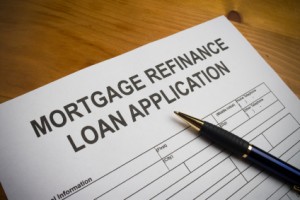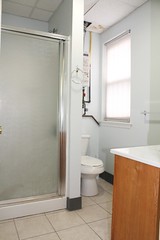Obama Proposes New Home Loan Refinancing Plan
Posted on Feb 07 in Free Educationby adminPrint

From: money.cnn.com
By: Lee Christie
NEW YORK (CNNMoney) — The Obama administration on Wednesday detailed its latest plan to help millions of homeowners refinance their mortgages to today’s historically-low rates.
The plan, which requires approval by Congress, would allow borrowers who are current on their mortgage to save an average of $3,000 a year by refinancing into loans backed by the Federal Housing Administration, according to the U.S. Department of Housing and Urban Development.
The plan is estimated to cost between $5 billion and $10 billion. To pay for it, President Obama said he does not plan to add to the deficit. Instead, he wants to impose a fee on large banks — a move that may have a hard time making it past members of Congress, who have rejected the notion of taxing the banks in the past.
The refinancing plan is the latest in a string of programs designed to help solve the nation’s housing market crisis. Three years ago, Obama unveiled the Home Affordable Modification Program (HAMP) foreclosure prevention effort and soon followed up with the Home Affordable Refinance Program (HARP), which helps homeowners who owe more on their homes than they are worth refinance their loans. But the programs, which sought to help 8 to 9 million homeowners who hold loans from government-supported Freddie Mac and Fannie Mae , have helped only some 2 million to date.
What’s different about this latest proposal is that it would help borrowers with private, non-government bank loans who could not obtain new refinanced loans in the past because they owed more on their mortgages than their homes were worth.
“If you’re underwater through no fault of your own and can’t refinance, this plan changes that,” Obama said in a speech in Falls Church, Va. On Wednesday.
To be eligible for the new refinancing program, borrowers must not have missed a mortgage payment for at least six months and have no more than one late payment in the six months prior to that. They also must have a credit score of 580 or better, a threshold that the administration says 9 out of 10 borrowers meet.
The borrower’s mortgage balance also cannot exceed the loan limits for FHA-insured loans in their communities, which range from $271,050 in low housing cost areas to $729,250 in high-cost ones. They also must own and occupy the home covered by the loan.
The administration wants the program to include a provision requiring lenders to take a “haircut” by writing down mortgage balances of deeply underwater loans — those whose borrowers owe more than 140% of their current home values. By doing so, it would greatly reduce the risk that the borrower will default, the administration said.
By refinancing into lower interest rate loans, mortgage borrowers could substantially reduce their monthly payments. Many would go from paying 6% or more to about 4.25%. On a $200,000 balance, that would save about $216 a month on a 30-year mortgage.
The program will also offer an option to allow borrowers to refinance into 20-year loans. These will not necessarily reduce monthly payments but will enable borrowers to build home equity more quickly and enable them to finish paying off the loans sooner.
The administration wants homeowners to take that option and is proposing that the FHA pay closing costs to encourage them, which would result in an additional average savings of about $3,000.
This latest initiative first emerged in last week’s State of the Union address, when the president said he would launch a program that could save borrowers thousands of dollars a year by allowing them to refinance into loans at current low interest rates.
The president said the plan is an effort to help bolster the housing market, and subsequently the economy. The 3.5 million homeowners the program targets are not in default, the administration said, and the cash freed up could result in more consumer spending




































































